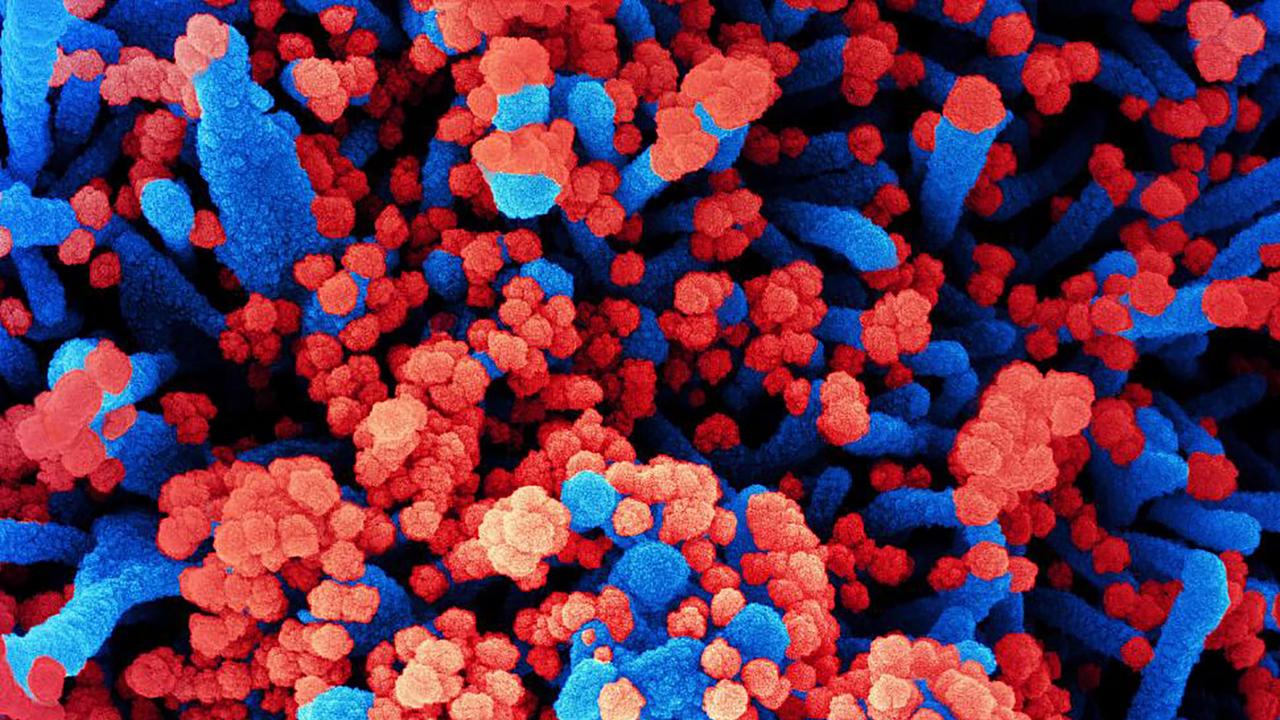[ad_1]
The alarm bells are ringing after the detection of a new variant of the Covid in France, a renowned health expert pointing to a “worrying” sign.
The medical world is once again on alert after the recent emergence of a new mutant variant of Covid-19 in France.
The new strain, dubbed “variant IHU” or B. 1.640.2, was first detected in the country last month, but is now making international headlines after catching the attention of global experts.
At least 12 cases have been confirmed near the Marseille area, and it is understood that many of these patients have been hospitalized for the disease.
The IHU variant, which is believed to be linked to a trip to the African nation of Cameroon, has 46 mutations that experts say could mean it is more resistant to existing vaccines.
However, on a more positive note, the new strain does not appear to be spreading quickly.
Stream the latest news about the Omicron outbreak on Flash. New to Flash? Try 14 days for free>
The variant was discovered by researchers at the University Hospital Institute (IHU) Infection Méditerranée, but is not yet under investigation by the World Health Organization (WHO).
There is also no concrete evidence that it has spread beyond the French border, although there are unconfirmed claims that it may have already entered the UK.
IHU professor Philippe Colson, head of the department that discovered the variant, published details of the strain in an article posted online last month, which has yet to be published in a medical journal.
“We have indeed several cases of this new variant in the Marseille geographical area,†he writes.
“We named it ‘IHU variant’. Two new genomes have just been submitted.
The newspaper claimed that the “index case” was a fully vaccinated man who returned from a trip to Cameroon in November three days before testing positive in France after developing “mild respiratory symptoms” a day earlier.
“The subsequent detection by qPCR of three mutations in the peak gene to screen for variants, as systematically performed in France in the event of SARS-CoV-2 positivity, revealed an atypical combination with L452R-negativity, E484K-positivity and E484Q -negativity… this did not correspond to the pattern of the Delta variant involved in almost all SARS-CoV-2 infections at that time, â€the document continues.
A number of other Covid-positive patients living in the same area – including several children – also revealed “the same combination of mutations”.
The article argued that the emergence of the new strain demonstrated the importance of extensive testing and “genomic surveillance.”
“These observations once again show the unpredictability of the emergence of new variants of SARS-CoV-2 and their introduction from abroad, and they illustrate the difficulty of controlling such an introduction and its subsequent spread,” said he noted, but added that it was “too early to speculate on the virological, epidemiological or clinical characteristics of this variant of IHU on the basis of these 12 cases.
US epidemiologist and health economist Eric Feigl-Ding is among a growing number of experts outside France to sound the alarm bells over the new variant, the Harvard-trained doctor taking to Twitter on Tuesday to make known the variant of “atypical”. combination”.
In a series of tweets, he pointed out that new variants are constantly being detected, but that doesn’t necessarily mean they will be more dangerous.
“What makes a variant more well-known and dangerous is its ability to multiply due to the number of mutations it has compared to the original virus,” he posted.
“That’s when it becomes a ‘worrying variant’ – like Omicron, which is more contagious and evasive of past immunity. It remains to be seen what category this new variant will fall into.
But he pointed out one data point that he said was “concerning” – the fact that intensive care rates are much higher in the region of France where the variant cluster is located, compared to the rest of the country.
Variant “no need to worry”
However, the fact that most of the positive samples were collected in November has led many to believe that he may have already been crushed by the highly transmissible variant Omicron, which began to spread around the world in late November.
The idea was also pushed by Imperial College London virologist Dr Tom Peacock, who was among the first to sound the alarm bells on the Omicron variant last year.
Speaking to Twitter on Tuesday, he explained that despite the recent surge of interest in the IHU variant, it “actually predates Omicron,” and since its first detection, only 20 sequences have been found, while that Omicron had around 120 in a shorter period of time.
The repression of the Covid in France
The news comes as France announced a new plan to crack down on the unvaccinated.
Under a new bill, unvaccinated residents could be denied access to restaurants, bars and other public places.
If passed, the bill will come into force on January 15 and replace the current health card system, which requires proof of full vaccination or recovery from Covid-19 before an individual can access healthcare. public places.
This would allow workers to perform identity checks on customers if their immunization card is in doubt, and sites that fail to verify the authenticity of customer cards could face heavy penalties.
Those who use false passes face up to five years in prison and a fine of € 75,000 (A $ 117,000).
[ad_2]

